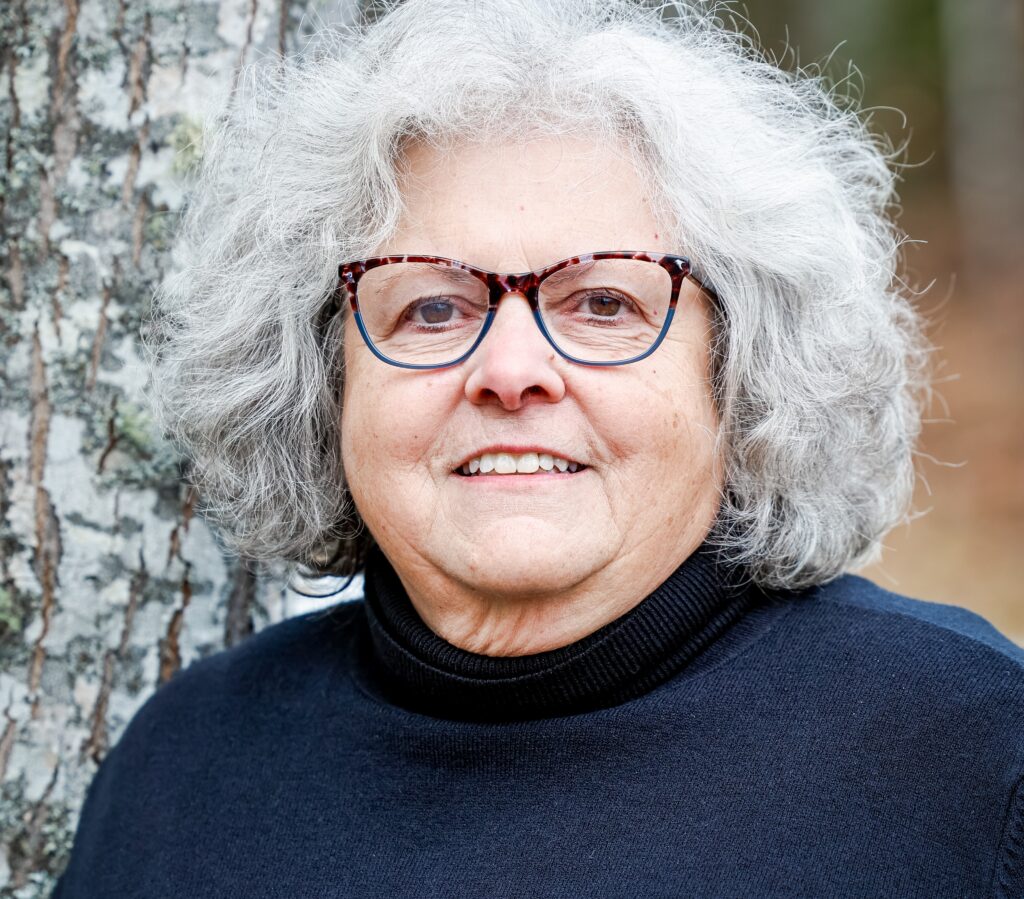Stonecoast Review
The Literary Journal of the Stonecoast MFA
Staff Spotlight
Jeanne Lawson

What do you write?
Crime fiction stories that are set on the coast of Maine, the history of various aspects of Maine that I find interesting, and short stories that are snippets of my life as a child.
Is there an author or artist who has most profoundly influenced your work?
Many but today I am reading authors of hard-boiled crime fiction stories from the 1930s – 1950s to become a better mystery/crime writer. I enjoy books by Raymond Chandler, Dorothy Hughes, and James Cain, to name a few.
Why did you choose Stonecoast for your MFA?
It was highly recommended by an alumnus and faculty member of the program. I like the low residency aspect of the program. I am self-motivated and the setup of the program gives me freedom and independence.
What is your favorite Stonecoast memory?
There really isn’t just one. Overall, it is meeting and getting to know other writers. We are a diverse collection of students and faculty coming from all walks of life, places, and genres and all trying to do the same thing.
What do you hope to accomplish in the future?
I want to continue to learn how to be a better writer; read many more books, and have more short stories published. I might even have a book or two in me.
If you could have written one book, story, or poem that already exists, which would you choose?
The Bible, but I could not do a better job than those who already wrote it. Maybe they could have taken me on as an intern.
Fiction by Jeanne Lawson
Ships Passing
“Ships that pass in the night, and speak [to]each other in passing, Only a signal shown and a distant voice in the darkness; So on the ocean of life, we pass and speak one another, Only a look and a voice, then darkness again and a silence.” Tales of a Wayside Inn by Henry Wadsworth Longfellow
It was not a pleasure trip. The publisher of a business trade magazine offered me a freelance assignment requiring a trip across the Atlantic Ocean to Cadiz, Spain. I grabbed it as fast as an eagle devours a freshly caught salmon. I traveled from my home in Maine to New York, where I boarded the ship and spent ten days on the MS Queen Margaret, named after the Queen of Denmark, Norway, and Sweden. The ocean liner’s maiden voyage was in 1936, when she left Gothenburg, Sweden, and traveled to New York. The ship was being retired, and the publisher wanted a story.
Anders Fredriksson designed the ocean liner before World War II. He vehemently protested when the Kriegsmarine, the German Navy, commandeered the ship during the war, and Nazi officers and their families enjoyed its amenities. The designer’s grandson, Erik Fredriksson, a sea captain of cargo liners, agreed to captain the ship’s final cruise.
Captain Fredriksson’s duties were demanding for the first few days of the journey. Instead of meeting with him, I interviewed the First Officer, the Boatswain’s Mate, and the Lecturer. Although I researched the history and significance of the liner, I learned one new tidbit: The ship had been called the “Orient Express” of the sea because of her elegant service and opulent passengers.
On the third day of the trip, I interviewed Captain Fredriksson, who gave me a tour of where he thought I could take the best pictures to accompany the article. He was formal and humble. I guessed he was about forty years old. His rugged, weathered, and agreeable face was perfect for the article. I saw him with a pipe in his mouth advertising Borkum Riff tobacco. The interviewee elicited all the answers I would expect from a reserved professional. But I wanted more of a personal spin. I asked, “Can you share a memory of your grandfather?” He said he could not recall anything special. I kept quiet, and my silence persuaded him to share a sweet story about how his grandfather taught him to ski when he was eight years old at the Vemdalen ski resort in Sweden.
After the interview, I worked in my cabin nonstop to meet my deadline. While pouring over my notes, I realized I needed the captain to clarify two details. He offered to meet me in his private lounge and ordered coffee and cake. This second meeting was more relaxed and genial than our first. He even asked me to call him Erik.
After answering my questions, he unbuttoned his uniform jacket, offered me more coffee, and asked me how I became a writer. I planned to give him a generic response but decided to reveal the truth. “My husband died five years ago. When I knew his death was around the corner, I prayed for God to give me something meaningful to do when I was all alone.” Erik stared and listened intently. “After he died, I remembered that I always wanted to improve my writing skills. I started taking college English classes, and then I realized that this is what God gave me to do – write. I write fiction but also seek out paying freelance business stories like this one because I have an MBA.”
When I finished speaking, Erik did not say anything. He averted his eyes from mine and looked down at his hands resting on his thighs. His eyes focused on his wedding band. “I stopped praying after my wife died three years ago. I was angry and denied God access to me. Did prayer help after your husband died? Does the grief get any easier?” Erik asked.
“Yes, to both questions. I still think about my husband every day, but I found after the third anniversary, I stopped crying all the time and felt less depressed.” My sense was Erik was in a place I knew well. “I leaned on God during my husband’s illness as I do today. I once read that we need to travel through our grief no matter how painful or ugly it gets and breakthrough to the other side. Then we can enjoy the love we shared with our spouse in a peaceful way.” I saw Erik’s face change. Suddenly, he began to sob. Not weeping but a deep, gut-wrenching cry. I let him get it out. When he finished, I dropped to my knees beside him and held his hands in mine. I said a silent prayer for God to ease his pain. He talked about his wife and their life together for two hours. I listened. That was what I thought he needed—someone to listen to his feelings about his loss.
When Erik stopped talking, I said, “Don’t worry – this won’t go in the article.” We both laughed, and his face looked at peace. I thanked Erik for trusting me enough to share his story.
I barely saw Erik for the rest of the cruise. We never spoke but only smiled from a distance. I left him a message to arrange a time to say goodbye and thank him for the interview, but I never heard back from him. As I joined the other disembarking passengers in Cadiz, I saw Erik on an upper deck. He waved and beckoned me to join him above. We spoke briefly, and he handed me an envelope. I invited him to come to Maine but doubted he would. “I’ve been praying since we last met – it feels good. Maine is a place I want to visit.” I wasn’t expecting that. But I knew he would love seeing the Atlantic Ocean from my back porch.
